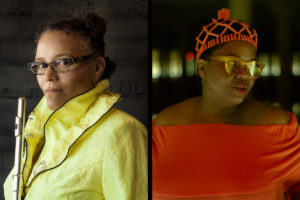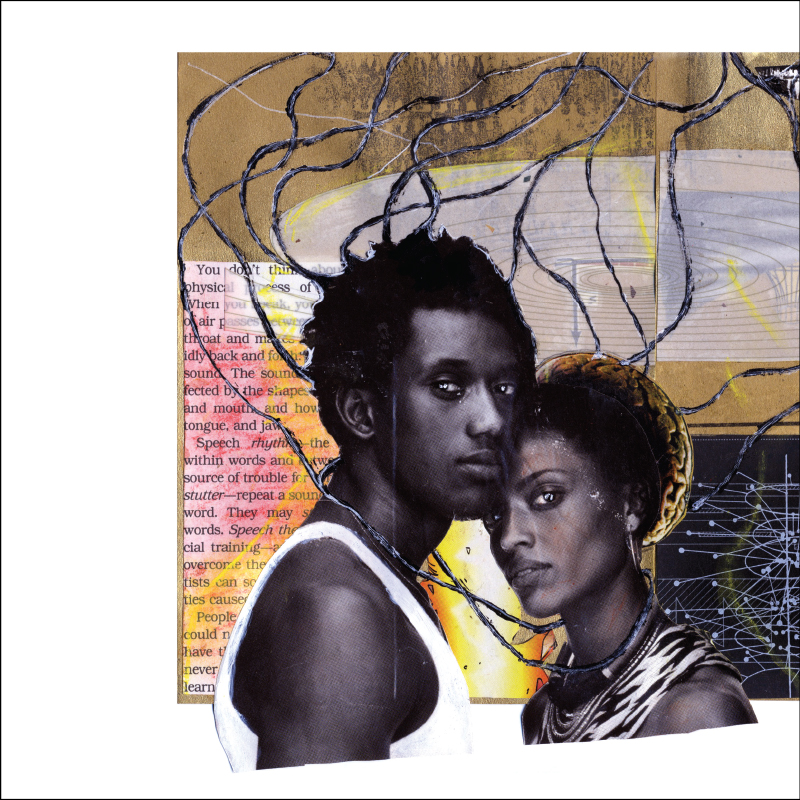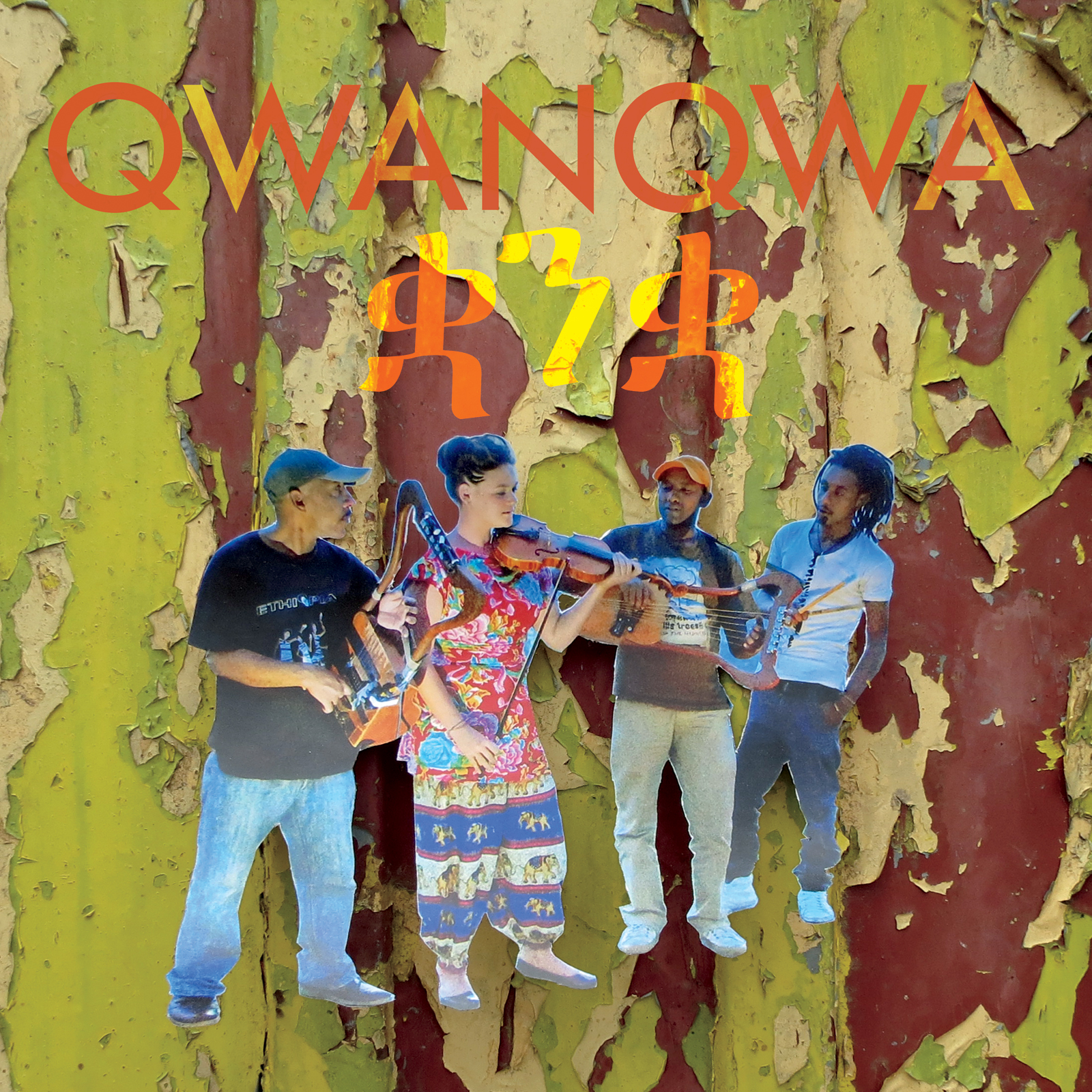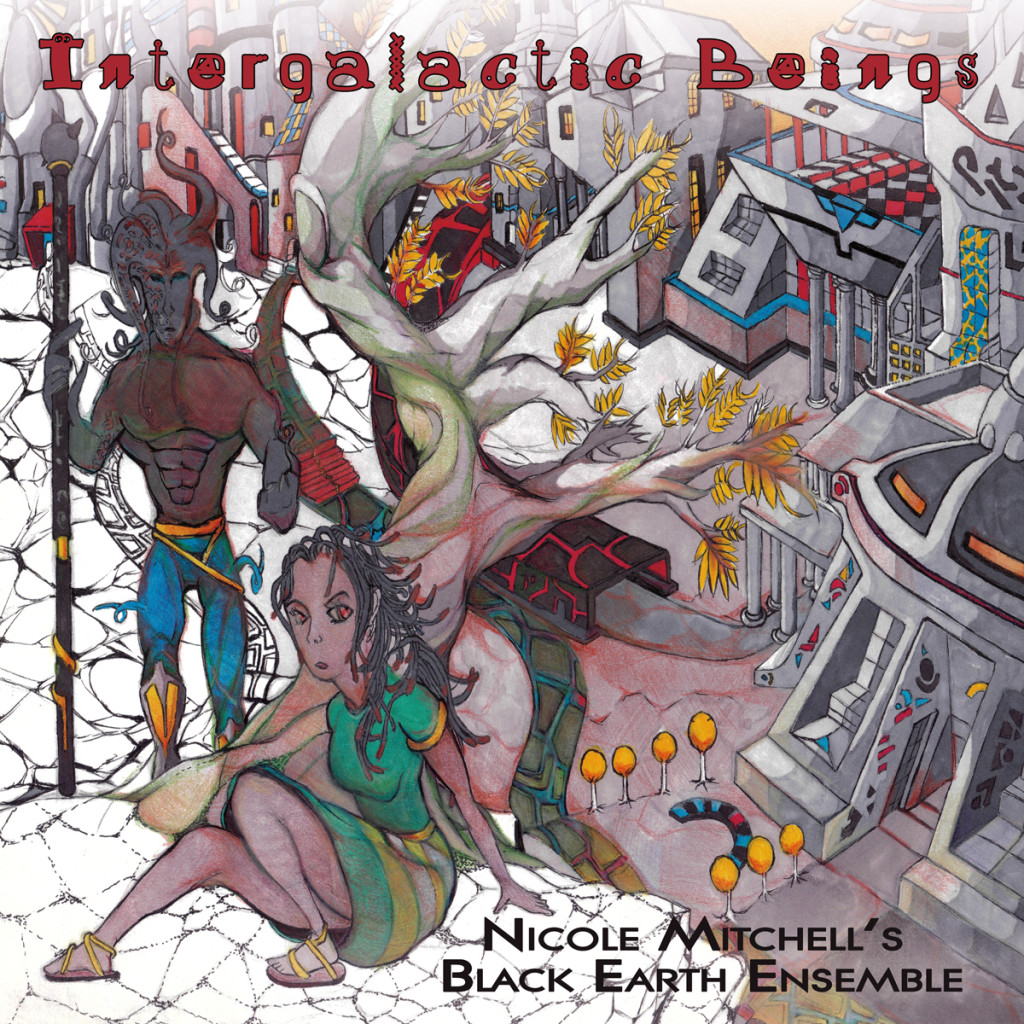Description
Crisis is our teacher. What is its message?
Embrace crisis. Lean into chaos for the fruit of acceptance
–“Biotic Seeds,” from EarthSeed by Nicole Mitchell and Lisa E. Harris
These are frightening, disorienting times. We’re overtaken by events out of our control, and the comforting sameness we’ve known for years is threatened by illness and death, by social upheaval and authoritarian rule, by unstoppable, unknowable change. How do we find hope, let alone courage, in the midst of all this?
If that sounds like a recap of last night’s news, you’re right. But it also summarizes the ideas and issues at the heart of EarthSeed, a bold new work by composer/improvisors Nicole Mitchell and Lisa E. Harris. Drawing from ideas first articulated by the celebrated science fiction author Octavia E. Butler in her novels Parable of the Sower and Parable of the Talents, EarthSeed depicts a world ravaged by rapacious, all-consuming greed, and the struggle, as epitomized by the lifeforce embodied in seed, to overcome that. It’s a beam of light through dark times, an urgent statement but also playful, offering wit along with wisdom, and laughter within the lessons.
It’s also strikingly prescient. Although the situation it addresses seems ripped from today’s headlines, EarthSeed was actually recorded in 2017, live at the Art Institute of Chicago. “If you read Parable of the Sower right now, it’s going to explain a lot of what’s happening in our world today,” says Mitchell. “And this was written in 1993 by Octavia Butler. Her purpose was to be able to use science fiction as a way for us to look at some of the social issues that we’re dealing with in our world.”
It was a shared interest in Butler’s writing that drew the two composers together. Mitchell, an internationally recognized composer and improvisor who regularly tops the Flute category of the DownBeat Critics’ Poll, had already released two albums of Butler-inspired music — Xenogenesis Suite (2008) and Intergalactic Beings (2014) — when she met Harris at the New Quorum Composers’ Residency in New Orleans. The multi-talent Harris, who in addition to her award-winning work as an opera composer is also a celebrated performance artist, filmmaker and social activist, had discovered Butler’s novels while working on her opera, Lilith. Upon recognizing the depth of their connection, the two decided to collaborate on a Butler-based music project.
In the novel, Parable of the Sower, 15-year old Lauren Oya Olamina goes on a journey through a ravaged California of the future, and delivers a sacred text: Earthseed: The Books of the Living. For their work, Mitchell and Harris drew from that idea, but not from Butler’s words. “All the words and all the text in the music are ours, they’re not Octavia’s,” says Mitchell. “Except for the word EarthSeed,” she adds, with a laugh.
There was no division of labor, either, as both were equally involved in creating the text and composing the music. “We were very interested in how we, as a duo, could truly co-compose across both of these disciplines, and create a sacred space for the unknown to sound,” says Harris. “We really combined our vision. And the piece unfolded like a conversation, at every step.”

Nicole Mitchell and Lisa E. Harris
Fittingly, EarthSeed opens with “Evernascence/Evanescence,” a conversation between the two, with Mitchell on flute, and Harris whistling. “Ownness” features Harris on theremin, but this wasn’t Mitchell’s first time improvising with a theremin player. “Alex Wing uses the theremin on [the album] Mandorla Awakening,” she says. “What was new for me was, even though I have a lot of projects with vocalists, this was the first time working with vocalists that have an opera background.”
In addition to Harris’ powerful spinto soprano, EarthSeed also features the voice of Julian Otis, a dramatically versatile tenor whose voice sometimes stretches into countertenor territory. On “Whispering Flame,” the arching intensity of writing, with Harris’ and Otis’ voices slowly rising in both pitch and volume as the ensemble buzzes and clangs behind them, recalls the global/operatic fusion of some of Lou Harrison’s work for gamelan and voices.
On the other hand, there’s “Yes and Know,” which starts with a sort of call and response, in which each “Yes” is answered with a “No” (or is it “Know”?). These are spoken, not sung, but the range of expression is broad and playful as flute, violin, and trumpet intone slow chords behind them. But as the piece develops, the music becomes less about voice and accompaniment and more about the interplay between all the musicians of Black Earth Ensemble — Tomeka Reid’s cello, Zara Zaharieva’s violin, Ben LaMar Gay’s trumpet, Avreeayl Ra’s percussion, and, of course, Mitchell, Harris and Otis.
“It’s all about community,” Mitchell explains. “This is not a through-composed piece but a piece that incorporates a lot of improvisation. The voices of the musicians are also contributing, through their improvisation, towards the sonic expression of the piece.”
There are times, as with the instrumental “Whole Black Collision,” where the interplay between the winds, strings and voices is set against electronic instruments to harrowing effect, and moments, like the opening of “Purify Me with the Power to Self Transform,” where the use of harmonics by the strings and flute evokes the pacific transcendence of Tibetan monastery music. But there’s also the wordless vocals of “Phallus and Chalice,” where the teasing interplay between Harris and Otis evokes audible chuckles from the audience, and that’s where the hope that underlies EarthSeed is most obvious.
“We had a lot of fun with that one,” says Harris. “There’s play happening there, but there’s a real communication as well, because for us and also for the listener, this conversation is an example of how we living beings can surpass language barriers and even create new language and achieve understanding…if we allow space for listening.”
“What I really like about the album is that it has humor,” adds Mitchell. “In African-American culture, resilience is why we’re still here. Because if you don’t have a sense of humor, that means that you’re not being elastic. It’s that bounce that helps us to be resilient, to overcome obstacles, and to move through difficult moments and know that there is going to be an end.”
Additional information
| Weight | N/A |
|---|---|
| Format | CD, 2xLP |
Bandcamp
Bold, visionary, and idiosyncratic, the music here sometimes settles into a deep meditative hum that grounds us in the present; at other times, it explodes like some primal scream crying out from the uncertain future.
John Morrison
Jazz Times
unearthly but also familiar and compelling.
Michael J. West
Stereogum
This is something unlike anything else you’ll hear this month, or this year.
Phil Freeman
The New York Times
open up listeners to bold new ways of thinking about the world, and to encourage them to see past its present-day limitations.
Giovanni Russonello
The Vinyl District
destined to be one of the best of 2020.
Joseph Neff
The Quietus
It is a sort of avant-garde opera in its form: vocals, bare strings and flute patterns trace themes around poetic axioms. It is clear and luminous, in its text and in its airy instrumentation. There is much wisdom in Mitchell and Harris’ words.
Jennifer Lucy Allan
Chicago Reader
The musical journey of EarthSeed defies any comfortable genre tag; it’s ritual, it’s soul exploration, and most important, it’s challenging, rewarding art.
Steve Krakow
Pitchfork
Drawing on the fusion of improvisation and composition that marks the works of the AACM and Art Ensemble of Chicago, EarthSeed’s music is challenging and bracing, often deploying an array of small sounds that confront and befuddle.













